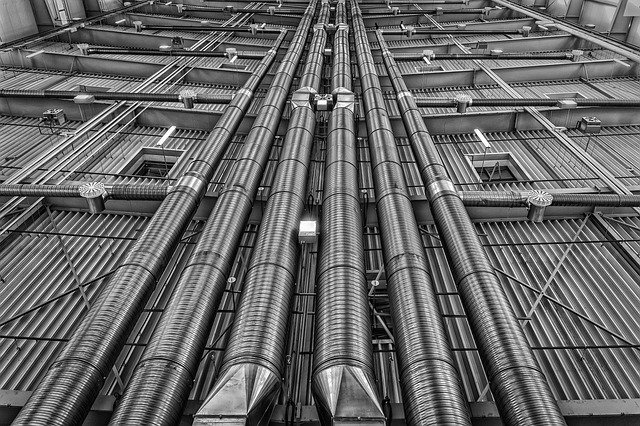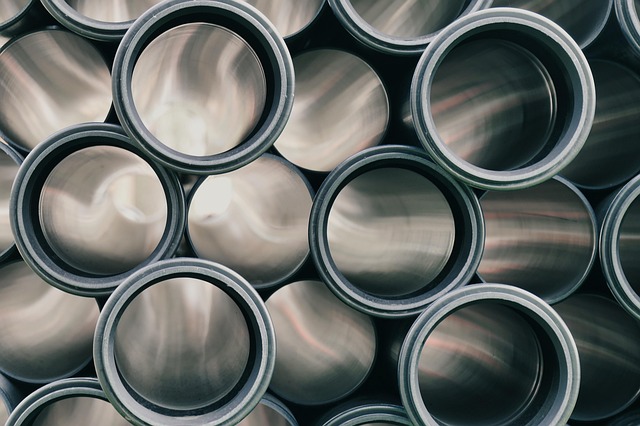Mechanical Engineering Training in New York City – Skills for Modern Infrastructure and Design
New York City, a global hub for construction, architecture, and complex infrastructure projects, requires highly skilled mechanical engineers to drive its development. These specialized training programs provide a hands-on learning approach, enabling students to develop real-world competencies in HVAC system design, advanced manufacturing processes, and sustainable building technologies. This curriculum is vital for equipping the next generation of professionals to manage and design the mechanical systems essential for the city's dynamic, modern, and growing environment

New York City stands as a hub for engineering innovation, where mechanical engineering training programs address the growing demand for skilled professionals in infrastructure and design. The city’s unique blend of historic buildings and cutting-edge construction projects creates an ideal learning environment for aspiring mechanical engineers.
What Makes Practical and Accredited Programs Essential?
Accredited mechanical engineering programs in New York City maintain rigorous standards that ensure graduates meet industry requirements. These programs undergo regular evaluation by organizations like ABET (Accreditation Board for Engineering and Technology), guaranteeing that curriculum content aligns with current industry needs. Practical components include internships with local engineering firms, cooperative education opportunities, and project-based learning that mirrors real-world engineering challenges.
Students benefit from partnerships between educational institutions and major NYC infrastructure projects, providing direct exposure to ongoing construction and renovation work throughout the five boroughs. This practical approach ensures graduates understand both theoretical principles and their application in complex urban environments.
How Does Focus on HVAC and Building Systems Prepare Students?
New York City’s diverse building portfolio, from pre-war apartments to modern skyscrapers, requires mechanical engineers with specialized knowledge in heating, ventilation, and air conditioning systems. Training programs emphasize energy efficiency, sustainability, and compliance with local building codes and environmental regulations.
Students learn to design and maintain systems for various building types, including residential complexes, commercial towers, and industrial facilities. The curriculum covers load calculations, ductwork design, refrigeration cycles, and integration with building automation systems. This specialization proves particularly valuable given NYC’s focus on reducing carbon emissions and improving building energy performance.
Why Are Up-to-Date Engineering Software Skills Crucial?
Modern mechanical engineering relies heavily on computer-aided design (CAD) software, simulation tools, and building information modeling (BIM) systems. NYC training programs provide access to industry-standard software including AutoCAD, SolidWorks, ANSYS, and Revit MEP.
Students develop proficiency in 3D modeling, finite element analysis, computational fluid dynamics, and energy modeling software. These digital skills enable engineers to visualize complex systems, perform virtual testing, and collaborate effectively with architects and other engineering disciplines on large-scale projects.
What Role Do Labs with Modern Testing Equipment Play?
Hands-on laboratory experience distinguishes quality mechanical engineering programs from purely theoretical approaches. NYC institutions invest in state-of-the-art testing facilities that include materials testing machines, wind tunnels, thermal analysis equipment, and vibration testing apparatus.
Laboratory work allows students to validate theoretical concepts through experimentation, develop troubleshooting skills, and understand the behavior of materials and systems under various conditions. This practical experience proves invaluable when graduates encounter real-world engineering problems that require both analytical thinking and hands-on problem-solving abilities.
How Do Tutors with Industry Experience Enhance Learning?
Instructors with active industry connections bring current practices and emerging trends directly into the classroom. Many NYC mechanical engineering programs employ practicing engineers who work on major infrastructure projects, green building initiatives, and innovative design solutions throughout the metropolitan area.
These industry professionals provide insights into project management, client relations, regulatory compliance, and the practical challenges of implementing engineering solutions in urban environments. Their networks often lead to internship opportunities, job placements, and collaborative research projects that benefit both students and the broader engineering community.
| Program Type | Institution Example | Cost Estimation |
|---|---|---|
| Associate Degree | Community College | $3,000-$5,000/year |
| Bachelor’s Degree | State University | $10,000-$25,000/year |
| Master’s Degree | Private University | $30,000-$60,000/year |
| Certificate Program | Technical Institute | $5,000-$15,000 total |
| Professional Development | Continuing Education | $500-$3,000/course |
Prices, rates, or cost estimates mentioned in this article are based on the latest available information but may change over time. Independent research is advised before making financial decisions.
Mechanical engineering training in New York City provides comprehensive preparation for careers in modern infrastructure and design. The combination of accredited programs, specialized focus areas, current technology, practical laboratory experience, and industry-connected instruction creates a robust educational foundation. Graduates emerge equipped to tackle the complex engineering challenges facing urban environments, from sustainable building systems to innovative infrastructure solutions that support the city’s continued growth and development.




